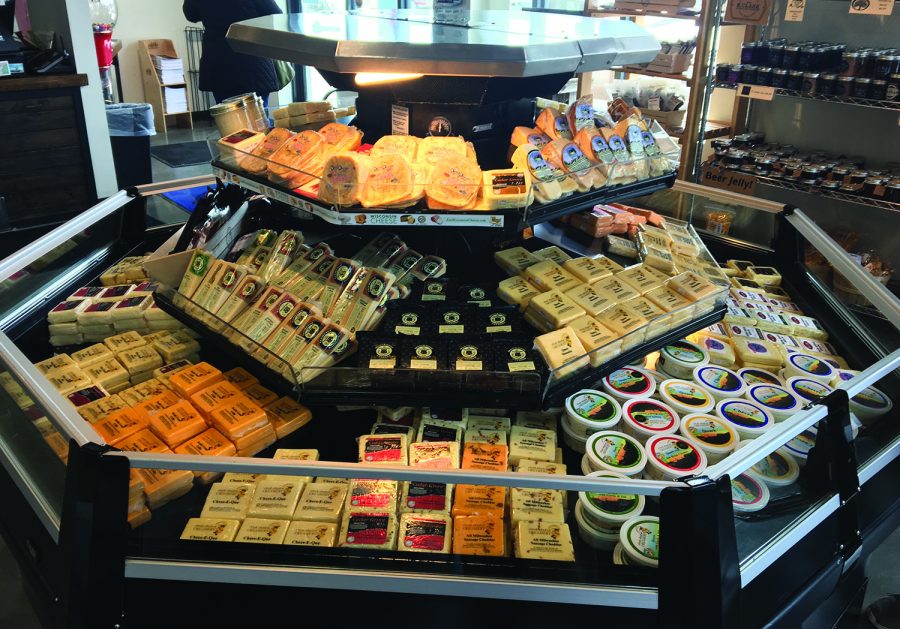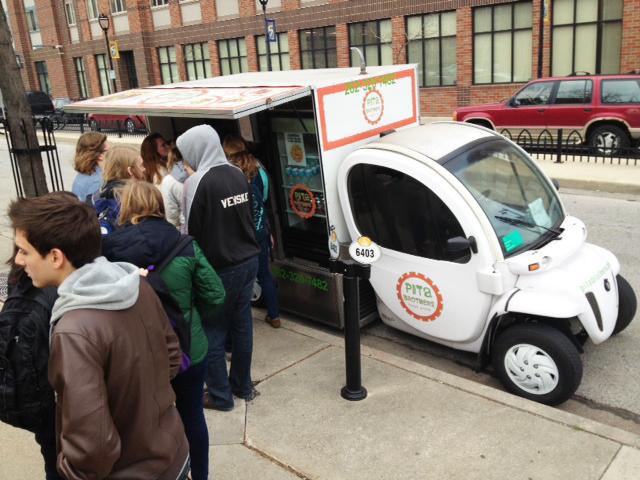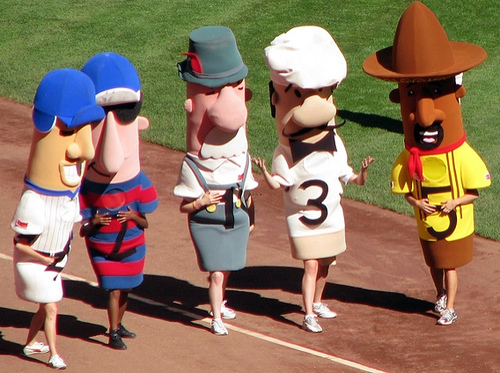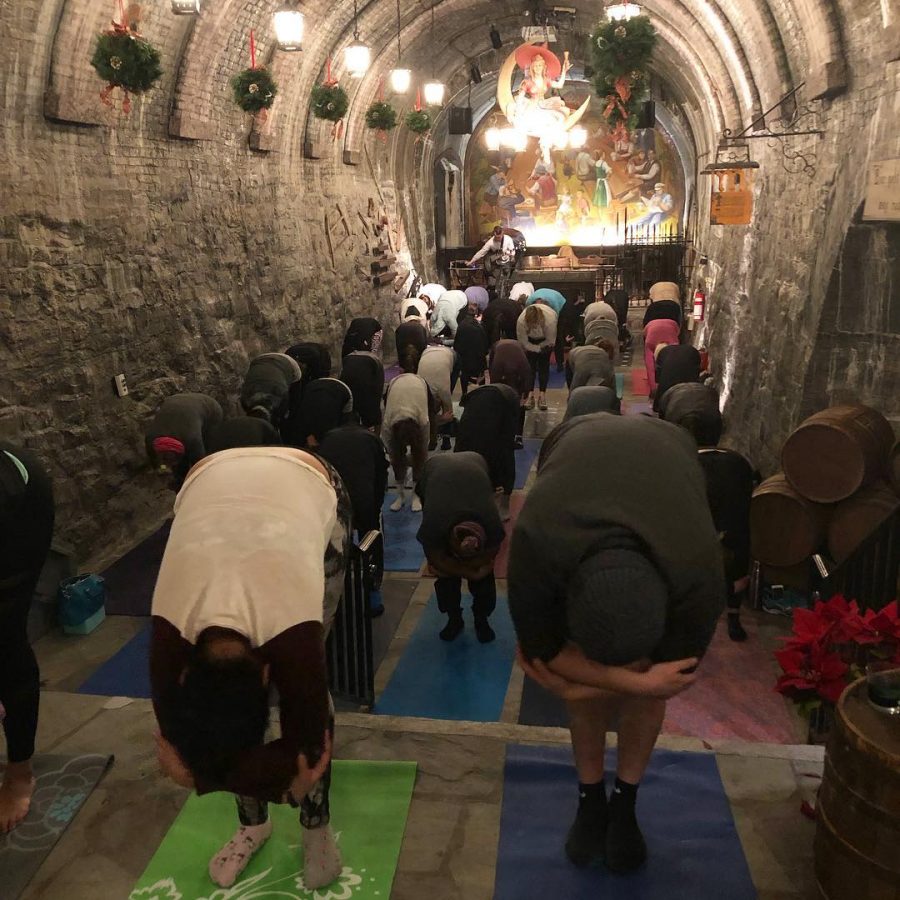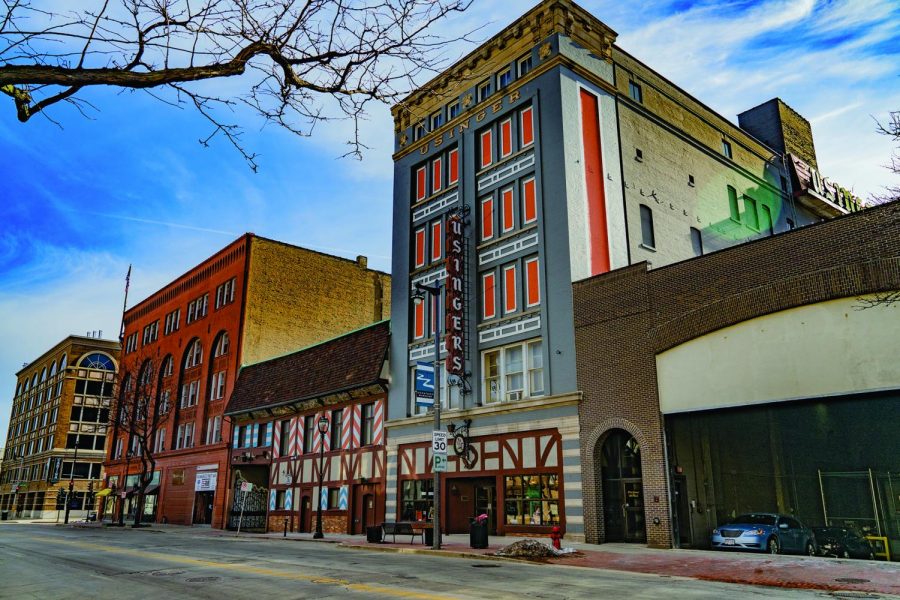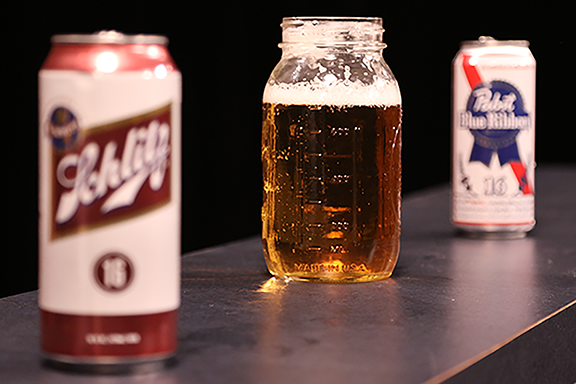As you walk just north of the famed Rockwell Automation Clock Tower, entering the Walker’s Point neighborhood on Milwaukee’s south side, the aroma of cheese is undeniable. The strong scent is because of Clock Shadow Creamery, Wisconsin’s first urban cheese factory, which strives to give the Milwaukee community fresh and delicious cheese.
The factory was opened by the founders of Cedar Grove Cheese, one of Wisconsin’s oldest cheesemakers located in Plain, Wisconsin, and is owned by Milwaukee native Bob Wills. After hoping for many years to bring local cheese-making to his home area, Wills saw his dream become reality in April of 2012 with the opening of the factory.
“When they built this building, they had the intent of having urban cheese making in it,” Patty Peterson, Clock Shadow Creamery’s director of retail, said. “This area has been kind of a food desert, and (the founders) really wanted to bring cheese making into the city of Milwaukee. So much cheese making in Wisconsin takes place on the west side of the state, so they really wanted to bring something over here so that this city would know what cheese making (and what) dairy farming is all about.”
While the main allure of the factory is the cheese, the story behind Clock Shadow Creamery’s building is another compelling part of a visit there. The building and its very location are “green,” meaning its construction and current practices strive to use as much renewable energy as possible.
“Our building was built six years ago on a brownfield, which means that (the land) was too contaminated to actually fill,” Peterson said. “They actually had to dig out 20 feet of dirt and contaminated soil and put in 20 feet of new fill.”
Along with this repurposed foundation, the community-centric building features a beehive, recycled doors, light and plumbing fixtures, and stairwells made of ash trees that had been infected with ash borer. The elevator in the building is also the first of its kind, using the ride up to power the ride down (and vice versa) using two large magnets holding kinetic energy. Plus, the roof boasts a feature that collects rainwater for the rooftop garden, with the extra being used to flush the toilets.
Because Clock Shadow Creamery’s cheesemakers generally start early in the morning and finish before the store is actually open, visitors are not guaranteed a glimpse into the cheesemaking process when touring the establishment. But that doesn’t mean one can’t enjoy a look around the sustainable creamery.
“I was really disappointed I didn’t get to see any cheese made,” Nathan Gilson, a Duluth, Minnesota, native who had recently finished the official tour, said. “But I was really surprised by how cool the building was. That really made up for it.”
While the green aspects of the factory attract visitors, the creamery’s focus remains making cheese – and lots of it. The cheesemakers at Clock Shadow Creamery make about 1,000lbs. of cheese a week, Peterson said. While the figure is not as much as most industrial cheese factories, Peterson noted that it’s not bad for a small company in Milwaukee’s south side.
Clock Shadow Creamery specializes in about 15 different kinds of base cheeses and adds flavors to those 15 as they see fit. When asked to pick a favorite amongst them, Gilson and Amanda Pete, an associate at Clock Shadow Creamery, said there were several contenders to choose from.
“It’s a really tough choice, but my favorite is probably the goat cheese,” Pete said.
Gilson said, “I really liked the curds, and I’m going to have to go with the cajun ones as my favorite.”
While a visitor to Clock Shadow Creamery may not get to see the cheesemaking process firsthand, with lots of cheese and a unique venue, one is guaranteed a lesson on the building’s history and the chance to see Wisconsin’s first urban cheese factory for themselves.

